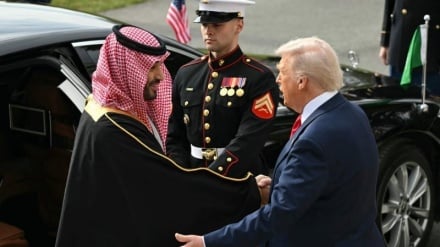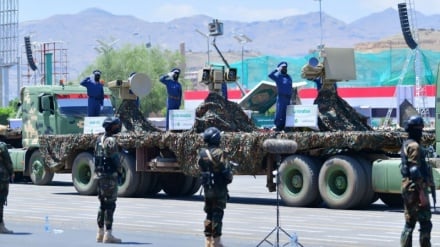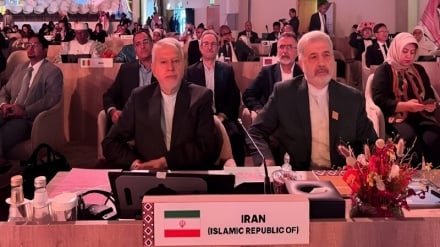Who will answer for Yemen’s suffering?
For months Saudi Arabia has been attempting to shell and bomb Yemen back to the Stone Age over the course of its illegal military aggression against the Yemeni population.
The Saudi intervention was launched back in 2015 under the pretext of restoring the rule of fugitive Yemeni President Abd Rabbuh Mansur Hadi. Back then, Riyadh reached an agreement with Washington that it would be allowed to form a so-called coalition, but instead of targeting Daesh or al-Qaeda, their forces have been fighting the resistance movement led by the Ansarullah movement, claiming that the atrocities that are being committed over the course of the fighting are aimed at reducing Iran’s influence in the region; following a series of unfounded allegations.
The strategy that Saudi Arabia chose at the start of its intervention closely replicates those that Washington used in Afghanistan, where ground troops captured only key hubs, while the rest of the country was bombed by warplanes in an attempt to suppress any resistance. Saudi authorities are taking advantage of the fact that Yemen is the poorest country of the Arab World, and a country that possesses no antiaircraft capabilities. This has led to thousands of civilian casualties.
This war, according to UN estimates, has already led to the largest humanitarian crisis on Earth, with a total of 21 million Yemenis in need of urgent humanitarian assistance, and with 7.5 million being on the verge of painful death due to the absence of food and drinking water. According to Reuters, at least 10,000 people have been killed in Yemen’s 18-month-old war, with over 3,500 civilians falling victims to airstrikes carried out by the Saudi-led coalition. Moreover, some 30,000 civilians have been injured over the course of these attacks, and a total of 2.8 million people forced to leave their homes. While the majority of the hospitals have been destroyed or forced to stop operating, the humanitarian situation in Yemen is deteriorating rapidly. The UN Humanitarian Coordinator Jamie McGoldrick has already announced that the death toll may be much higher, since in the absence of medical facilities, numerous deaths go unreported and unregistered all across Yemen.
The report drafted by the UN Refugee Agency states that Saudi Arabia has been repeatedly violating human rights and international laws during its military campaign. The list of Riyadh’s crimes is long and depressing, since it includes such criminal acts as shelling of residential areas, markets, medical and educational institutions, the use of landmines and cluster bombs, the use of sniper attacks in residential areas, restrictions of freedoms, and the enlistment of minors. This UN agency is convinced that the international community has a moral obligation to take immediate steps to ease the resulting, appalling human suffering.
On August 15, Saudi aircraft destroyed yet another hospital run by the Doctors without Borders, martyring 11 and leaving at least 19 more injured. In response, the UN Secretary General Ban Ki-moon stressed the fact that Saudi Arabia has been routinely attacking hospital in Yemen, including a hospital in the Saada Governorate and a mobile medical center in the Taiz Governorate. On January 8, Human Rights Watch reported that Saudi warplanes began dropping cluster bombs on residential areas of the Yemeni capital – Sana’a. The director of this organization, Steve Goose, stressed the fact that the repeated use of cluster bombs in densely populated areas leads one to the assumption that Riyadh is targeting civilians intentionally, which constitutes a war crime. Despite the fact that Washington has been selling weapons to Saudi Arabia before and throughout the conflict, Riyadh seems to be unable to score a decisive victory in Yemen. In turn, well-prepared and highly mobile armed units of the revolutionary forces have been counterattacking successfully and have even launched a number of missiles into the territory of Saudi Arabia. It’s been noted time and time again that Yemenis are natural born fighters and Saudis can in no way compete with them on the battlefield. Moreover, the Ansarullah movement has been gradually bringing the fighting into southern Saudi territory. In addition, the military operation is costing Saudi Arabia tens of millions of dollars a day, a problem considering the kingdom’s budget was running thin even before Saudi Arabia launched its military campaign.
But there’s yet another major player emerging on the stage – Daesh who is claiming its own stake in Yemen. It’s is now clear that neither Saudi Arabia nor its backers in the West had a comprehensive plan of action back when this initial military aggression was launched. Therefore, this conflict can be protracted for decades as is the case for concurrent wars in Afghanistan or Iraq; matters that will eventually become a major problem for the security of Saudi Arabia and its Persian Gulf allies. This war cannot be won by military means. Yemen now faces disintegration, while Al-Qaeda in the Arabian Peninsula is gradually expanding its influence over territories not controlled by any of the parties of this bloody war. Soon we’ll witness yet another Syria in Yemen.
Therefore, one thing is clear: there can be no major political decision made in Yemen without the Ansarullah movement, and Saudi Arabia must start real negotiations with them sooner or later, and without any preconditions. As for the international institutions and human rights organizations, they must become actively involved in the search for a peaceful solution of the Yemeni conflict by all mean possible to prevent the further destabilization of Yemen and the suffering of its people.
Elsewhere, Amnesty International has once again accused the United States government of “deadly hypocrisy” for its military aid and massive arms deals with the usurper regime of Israel and Saudi Arabia that have carried out war crimes and other violations of international protocols. The international organization has also called on the US government to do an about-face on its current policy of providing vast arms sales and military aid to repressive client states in the Middle East. This is because since President Obama took office, the US government has done a staggering $110 billion in arms sales with the Saudi monarchy alone - amounting to an unprecedented increase. Like the Zionist regime of Israel, Saudi Arabia has long been a close US ally, but the US-Saudi military alliance has grown dramatically since 2015. Throughout the past year, US weapons have kept flowing to Saudi Arabia, even while the United Nations and human rights groups have documented a slew of Saudi war crimes in Yemen.
Here, Amnesty International and Human Rights Watch have also condemned the US and UK governments for providing weapons, military intelligence and support to the Saudi-led coalition that has since March 2015 launched thousands of air strikes in Yemen, warning that they are complicit in war crimes. The bottom line is that the US government considers to arm Saudi Arabia with precisely the kinds of weapons that Saudi Arabia and other proxies have used to attack civilian communities in Yemen. That’s the fundamental problem and International Law is clear on that: Nobody should be putting more bombs or weapons in the hands of the Saudi-led coalition.
As is, the US-backed air campaign is designed to help the Saudis and their military re-establish regional position, silence the opposition, and strengthen international prestige. It’s a huge relief for Israel too, because under the pretext of fighting terror and humanitarian intervention, Riyadh has effectively shut down any regional discussions about the Palestinian-Israeli conflict and the ongoing crimes of the Zionists in the occupied lands of Palestine.
Here is the final argument though: Under the fundamental rule of International Law, Saudi Arabia and other US proxies have no right to bomb Yemen. They have no authorization from the UN Security Council and they are not acting in genuine self-defense. They offer no explanation for why their aggression would comport with international protocols. Without UN mandate, they have no right to act as unilateral cop or in alliance with certain regimes to strike Yemen. Into the argument, it is wrong to assume that the airstrikes, supported by the US government, are peripheral. They are central to the balance of power within the Arab world, to tensions within the region, and are at the core of fears in the global oil market.
That said, the campaign has failed to affect regime change in the war-torn country. That’s the nature of any illegal war. The popular forces - that are formed of Ansarullah movement and a dozen other large groups who altogether set up the popular committees - and army of war-ravaged Yemen are no proxy of any other countries as alleged by Riyadh. In effect, the Saudi-led warplanes are bombing the civilian infrastructure with little care for civilian life on the ground. They seek to salvage the US imperial policy and maintain the regional status quo. It is past time for the UN Security Council to stop playing politics and start using the leverage it has to stop this madness. This kind of outdated aggression and barbarity is condemnable by any decent human being. It has no place in the 21st century.
That was from an article by Martin Berger, who is a freelance journalist and geopolitical analyst, coupled with some ground realities on the mishap created by the Saudi regime, this time in Yemen.
EA


